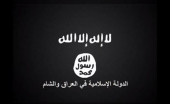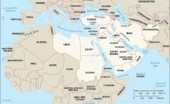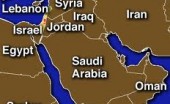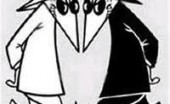Johannah Bernstein post: "eternally proud of my father’s extraordinary aeronautical engineering. legacy. here is a photo of the Canadair Water…
Syria/Lebanon example offers alternative for Iraq: Richard Sindelar
Written by Diana Thebaud Nicholson // October 11, 2007 // Geopolitics, News about Wednesday Nighters, Politics, Public Policy, Wednesday Night Authors // Comments Off on Syria/Lebanon example offers alternative for Iraq: Richard Sindelar
During the years Rick Sindelar served as Economic Consul at the US Consulate General in Montreal, he was a frequent participant at Wednesday Night, always a provocative and entertaining thinker.
Syria/Lebanon example offers alternative for Iraq
By RICHARD SINDELAR
SPECIAL TO THE [DesMoines] REGISTER
October 11, 2007
The presidential candidates face a dilemma. They want to articulate an Iraq policy that distinguishes them from their competitors and offers hope that would capture voters’ imaginations. Yet, their timid and vague stump pronouncements so far suggest none has any good idea for how to proceed.
Most candidates criticize President Bush’s small suggested drawdown, which would return U.S forces only to pre-surge levels. But few offer details about a pullout: When, how fast, how to protect force security during a drawdown or deal with the mess left behind?
The mediocre results of the surge still have Iraqis themselves expecting a U.S pullout. The Iraqi social-political maelstrom will be what it will be, and no amount of clever military tactics at present troop strength is likely to appreciably diminish the violence, or do more than postpone that inevitable pullout. So, where to turn for the next-best idea, since a buildup or just staying the course is political anathema?
The answer might be a Syrian one, a proven formula that both would leave us in a position to influence events, yet diminish our force footprint. No, not enlisting the present-day Syrians, a marginal shadow of their former selves, playing virtual lapdog to Iran, Hezbollah and other terrorists in a shameful effort to remain a player in Middle East politics.
But perhaps a realistic, hard-nosed president-elect in 2009 could study and borrow for Iraq the tactics used in Lebanon’s 1970-80s civil war by a tough former Middle Eastern player, Syria’s deceased President Hafez al-Assad.
The reality is that Iraq has devolved into a Lebanonized confessional mess, with tribes within factions within religious extremities, down to the same neighborhood-by-neighborhood factionalism that was a trademark of Beirut in the 1970s.
When Syria’s 1976 Lebanon intervention failed to end the fighting and brought increased Syrian casualties, Damascus under Assad’s leadership adopted instead a middle approach that saved Syrian lives, held his military together, and eventually helped Lebanon limp to a modicum of quiet.
In brief, the Syrians pulled back into the mountains, poised Godfather-like just outside but near urban centers and areas of fighting and intervened decisively only when one or another party overstepped unwritten but understood boundaries and trigger wires.
U.S. forces could poise themselves similarly in Iraq. Withdraw from urban areas, minimizing exposure of U.S. troops, but stay close enough to mount quick and tough forays into areas where the inevitable civil war among Iraqi factions gets beyond the usual bombings and exchanges of fire.
Position many of these troops in a blocking mode between urban Iraqi centers and Iran, a maneuver also affording an opportunity to diminish the flow of arms and military support from Iran.
In this way, U.S. forces would draw down from broad, country-wide deployments to a smaller yet potent force structure focused on containing if not eliminating the Islamic adventurism of both Iran and Iraqi Shia factions and any Sunni attempts to foment a Baath resurrection. Syrian intelligence operatives and military presence kept Lebanon’s factions boxed in so that none could assert too much military or political whim. A factor in Hezbollah’s exponential growth today in Lebanon is the complete 2005 withdrawal of Syrian forces under international pressure.
Significantly reducing the urban profile of U.S troops in Iraq would take the accelerant of the U.S. presence out of the Iraqi religion-based sectarian equation, as well as reduce military targets and opportunities for anti-U.S factions to generate world attention. When Syrian forces pulled back in Lebanon, fighting diminished because the anti-Syrian catalyst for some factions was withdrawn, or at least became harder at which to strike.
Then, like firefighters with limited resources overmatched by a raging fire, let the civil war burn itself out.
The short-term aftermath would be messy: violent factional fighting, bombings and refugee dislocations. But the U.S presence is not appreciably staunching the ongoing civil-war violence, and the next couple of years in Iraq will be bloody either way. At least American blood would not be so much in the mix.
As with Lebanon, politicians are survivalists in Iraq. If forced to be more on their own, Iraq’s fractured national leadership might choose to start cooperating more toward some semblance of national government. Their alternative is civil chaos and assassination, Lebanon’s preferred manner of regime change for many years, and now a growing specter in Iraq.
RICHARD SINDELAR, who was born in Ames, is a foreign-policy professor at the University of St. Thomas in Houston, He served as the State Department’s Lebanon analyst during the early years of civil war and later as deputy director of the Office of Near East & South Asia Analysis.



